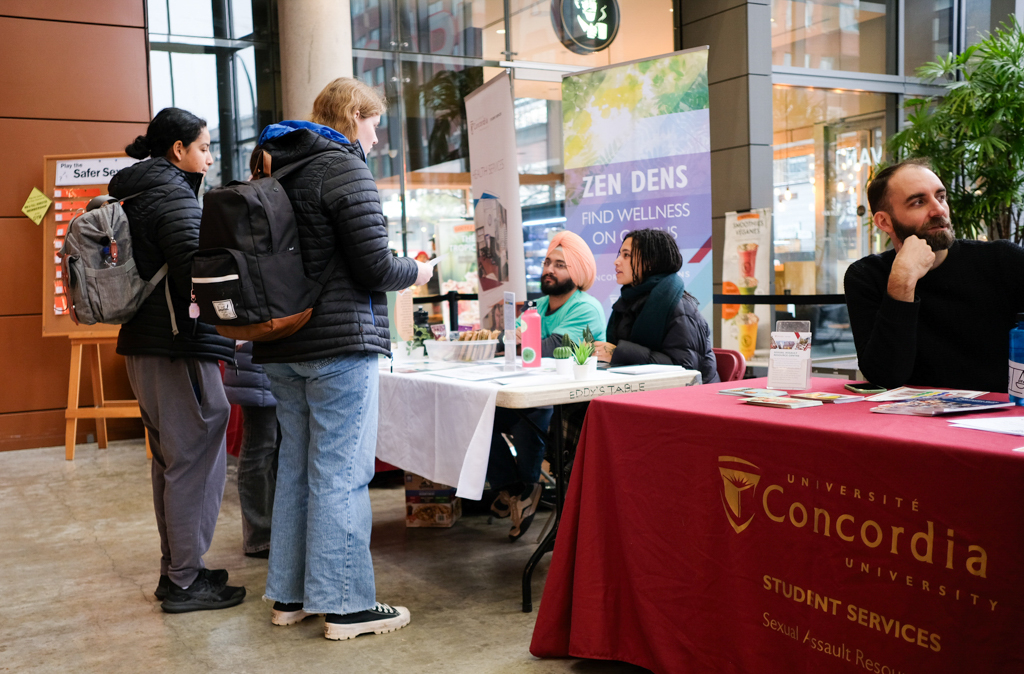Is SARC’s Consent and Care week working?
The week of Nov. 6 was Consent and Care week at Concordia, dedicated to support, honour and love sexual assault and violence survivors. The Sexual Assault and Violence Centre (SARC) hosted a week-long series of events, including a love letters to survivors workshop, lectures and many more.
According to Jenna Rose, the SARC’s project coordinator, this is the first week-long event series for Consent and Care week hosted by the SARC. However, the centre’s reputation might be hindering their message.
SARC started the week with an event titled “How to create a safety plan,” which focused on helping someone in a violent situation and preparing an escape plan.
The “Practice active bystander intervention” workshop on Tuesday highlighted “the importance of intervening when we hear and/or see violence in order to build a safe and supportive community,” as detailed in the event’s description on Concordia’s website.
On the interactive and artistic side, the SARC collaborated with Concordia Art Hives for the “Love letters to survivors” art workshop, where students and survivors created loving, supportive and empowering messages to honour survivors.
On Wednesday, during the Sexual Health and Pleasure community fair, Rose believed the small number of students who attended the event was due to its novelty.
“I think with these [new events], a lot of people won’t know about them right away,” Rose said. “I know that Ontarian universities have their Consent and Care week events in April during Sexual Assault Awareness month. We might do the same next year.”
Salim, a former Concordia student, dropped out of school after his experience with the SARC. For anonymity purposes, The Concordian is using only his first name. He was not fully aware of what the planned events were, yet he feels this is not the best way to invite students to see the SARC when needed.
“I seriously doubt that those kinds of events are having the reach that they want, because most of the students who went through [the SARC], we don’t trust them,” Salim said. “So, we are obviously not going to attend anything that they are hosting. We’re not interested.”
Concordia has a long history of controversial accusations from victims, who claim the university has not done enough to keep students safe. In 2013, the university created the SARC. In 2018, CBC reported that six students had filed complaints against Concordia to Quebec’s Human Rights Commission since 2012.
Since then, several policies on sexual assault and violence have been created, along with the Sexual Misconduct and Violence Committee (SMSV) in 2018. The SMSV has also been subjected to several scandals, such as being unsupportive and insensitive towards survivors. As a result, many students feel that Concordia still has not done enough regarding sexual assault and violence.
Salim is one of the many survivors who had negative experiences with the SARC, and he does not see these events as a gateway towards resolution.
“It’s just so insulting to all of us [survivors],” Salim said. “It’s really sad for me because I know that this is not over and I’m not the last one. A lot of people are going to suffer because of the SARC.”
The Concordian reached out to other SARC members for an interview but has not heard back in time for the publication of this article.
Corrections:
- In a previous version of this article, in the fifth paragraph, it was noted that one of the events, “Love letters to survivors”, was art therapy. That was not correct. The event was an art workshop, not therapeutic.
- In the tenth paragraph, it was written that SARC was created after six student filed complaints to the Human Rights Commission. This is false. SARC was created after students collaborated with the university to create a safer campus. Also, in the following sentence, the CBC article cited did not match the timeliness of the previous sentence. We rearranged the wording to ensure the timelines matched in their respective contexts.
We apologize and take full responsibility for our mistakes.
